
What is colon cancer? It is a type of cancer that begins in the large intestine, also called the colon, which is part of the digestive system. It often starts as small, non-cancerous growths called polyps that can turn into cancer over time.
Colon cancer treatment means using medical methods to remove or control cancer in the large intestine. The large intestine is also called the colon, which is part of the digestive system. Doctors treat colon cancer with surgery, medicines, or both, depending on how early or late the cancer is found.
Some people call colon cancer bowel cancer, large intestine cancer, or colorectal cancer. These terms often mean the same thing, but "colorectal" includes both the colon and the rectum (the last part of the intestine).
People generally ask why does colon cancer occur?. It usually happens when genetic mutations cause abnormal cell growth in the colon, often linked to risk factors like poor diet, obesity, smoking, lack of exercise, age, or family history.
Many patients think colon cancer is always deadly. This is not true. If doctors find it early, it can often be cured. Some people also believe it spreads very fast, but that depends on the stage and type of cancer. Treatments are improving every year, giving patients better chances of recovery.
Doctors may suggest different treatments for different people. The choice depends on the size of the tumour, the stage of the cancer, and the patient’s overall health. Early diagnosis of colon cancer is crucial.
People need colon cancer treatment when doctors find cancer in the large intestine. This cancer starts with small growths called polyps, which can turn into cancer over time. Treating colon cancer helps stop it from spreading and causing serious health problems.
The main causes of colon cancer are:
Colon cancer often starts without any signs. Many people feel fine in the early stages. But as the cancer grows, it can cause clear symptoms. Knowing these signs helps people visit a doctor early. Common symptoms are:
These signs are common in both men and women. However, symptoms of colon cancer in women can sometimes be mistaken for menstrual or gynaecological problems, which may delay diagnosis. It's important not to ignore any persistent changes.
If these symptoms last for more than a few weeks, it is important to see a doctor. Early detection increases the chance of successful treatment.
Many people ask how to detect colon cancer, especially when the symptoms are unclear or resemble common digestive issues. Colon cancer treatment usually starts when symptoms do not go away or test results confirm cancer. A doctor may suggest
If a tumour is found and confirmed as cancer, treatment is usually started to stop it from growing or spreading. If you are unsure what to do if colon cancer occurs, the first step is to speak with a cancer specialist and begin medical evaluation.
The sooner the cancer is found, the better the results after treatment.
There are many effective ways to prevent/survive colon cancer, especially when it’s detected early. Colon cancer is one of the most preventable types of cancer if risk factors are managed and early screening is done.
Many cases begin as small, non-cancerous polyps that can be detected and removed before they turn into cancer. Below are the key ways to prevent colon cancer:
1. Get Regular Screenings
Screening is the most effective way to prevent colon cancer. Tests like a colonoscopy can detect precancerous polyps and early-stage cancers. Most people should begin screening at age 45 or earlier if they have a family history or other risk factors.
2. Maintain a Healthy Diet
Eating a balanced diet rich in fruits, vegetables, and whole grains helps reduce the risk. Avoiding red and processed meats (like bacon, sausages, and ham) has been linked to lower rates of colon cancer. High-fibre foods support digestion and help keep the colon healthy.
3. Exercise Regularly
Physical activity improves bowel function and helps maintain a healthy weight, which reduces cancer risk. Aim for at least 30 minutes of moderate activity, like walking, five days a week.
4. Avoid Smoking and Limit Alcohol
Long-term smoking is strongly linked to several types of cancer, including colon cancer. Excessive alcohol consumption also increases the risk. Quitting smoking and drinking in moderation can greatly lower your chances.
5. Manage Weight
Obesity is a known risk factor for colon cancer. Losing excess weight through a combination of healthy eating and regular exercise can reduce this risk significantly.
6. Know Your Family History
If you have close relatives with colon cancer or genetic conditions like Lynch syndrome or FAP, you may need earlier and more frequent screenings. Discuss your family history with your doctor.
7. Stay Informed About Symptoms
Being aware of warning signs like changes in bowel habits, rectal bleeding, or unexplained weight loss can help you act quickly if they appear. Early detection saves lives.
If the tests show that there is cancer in the colon, treatment usually starts quickly. Early treatment gives the best results, especially if the cancer has not spread to other parts of the body. Delaying treatment can make the cancer harder to cure. If you or your loved ones have any of these signs, Bangla Health Connect connects you with cancer experts at the top hospitals worldwide.
.png)
Through Bangla Health Connect, Bangladeshi patients can access leading hospitals across India, Thailand and other countries that are recognised for excellence in colon cancer care. Many families choose international treatment because of advanced surgical options, modern therapies, and strong success rates offered by these hospitals.
Here’s why Bangladeshi patients choose colon cancer treatment with Bangla Health Connect’s network of leading hospitals worldwide:
Bangla Health Connect provides Bangladeshi patients with a trusted bridge to skilled specialists, advanced therapies, and affordable international colon cancer care.
Bangla Health Connect connects patients with top hospitals worldwide. These centres are recognised for their expertise in managing colon cancer, offering advanced surgical and medical treatments, and providing comprehensive support for international patients.

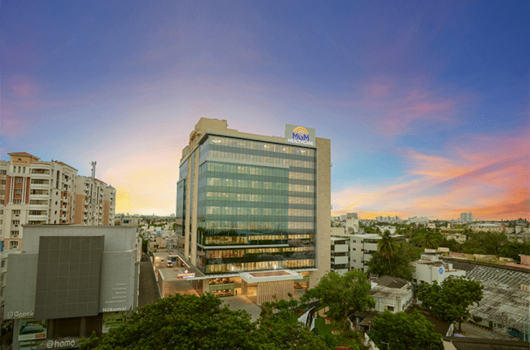
.jpg)

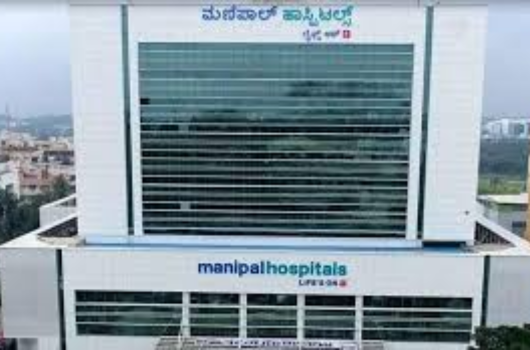
.png)
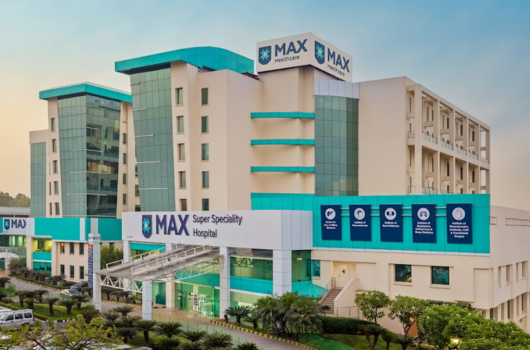
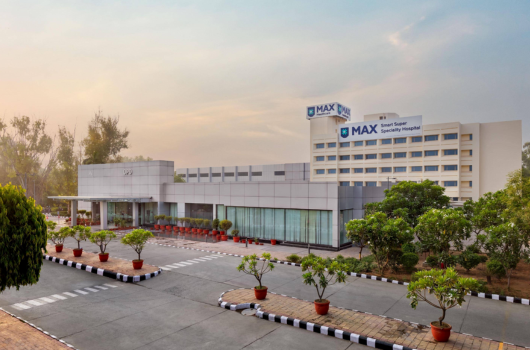
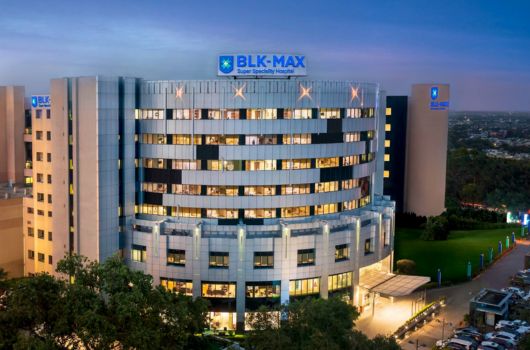




These hospitals follow global cancer treatment guidelines and provide full support for Bangladeshi patients through Bangla Health Connect.
The cost of colon cancer treatment $1,500 to $3,300 in India and from $2,000 to $4,300 in Thailand. The final cost may vary based on multiple factors such as the treatment method, hospital location, and stage of disease. Before viewing the detailed table of treatment-wise costs, it's helpful to understand what influences these expenses most.
Note: India is well known for offering cost-effective advanced cancer treatment. Hospitals combine affordability with strong clinical outcomes, supported by skilled oncologists and the widespread availability of generic medicines.
Note: Thailand’s hospitals are often promoted as premium destinations for international patients. Their higher costs reflect the use of advanced imported medicines, luxury infrastructure, and all-inclusive patient care packages.
The costs listed are approximate and may vary based on hospital, location, and patient needs. Consult the healthcare provider for accurate and updated information.
The currency conversion rates in the table above are based on data from October 2025.
For more help on cost estimates and personalised guidance, contact Bangla Health Connect.
Success in colon cancer treatment means the cancer is removed or controlled, and the patient can return to a normal or near-normal life.
Survival rates for colon (bowel) cancer vary depending on the stage at diagnosis. According to Cancer Research UK,
For patients whose cancer had spread to the liver, a UK study found that when surgery was possible, around 45% survived at least 5 years after treatment.
Doctors also use conditional survival rates. This means that if a patient has already survived 1 year after diagnosis, their chance of reaching 5 years increases to about 75%.
In colon cancer treatment, 'success' often refers to:
Success depends on factors like the cancer stage, the patient's health, and the treatment used.
Top hospitals prioritise early detection, tailored treatment strategies, and team-based care for colon cancer patients. Their approach usually includes:
This integration of modern technology, skilled experts, and collaborative care leads to better outcomes and enhanced quality of life for patients receiving colon cancer treatment.

In an insightful session on "Improving Cancer Treatment with Robotic Surgery", Dr. Venkatesh Munikrishnan, Consultant Colorectal & Robotic Surgeon, Apollo Hospitals, Chennai, says that, “ With robotics, patients have less blood loss, less pain, there’s quicker recovery. He also states that compared to open surgery, the length of stay is shorter, the time taken to get back to routine work is also shorter, and the costs are similar to laparoscopic surgery.
Bangla Health Connect helps Bangladeshi patients get safe and fast colon cancer treatment worldwide. The team works closely with the world-recognised hospitals to make every step simple and stress-free.
Bangla Health Connect makes this process simple and supportive, from travel arrangements to ongoing medical guidance, ensuring Bangladeshi patients receive high-quality care with peace of mind.
Contact Bangla Health Connect today to begin your treatment journey with trusted support every step of the way.
Note: Bangla Health Connect does not provide medical advice of any kind.

Mr. MD Aminul Haque, a 72-year-old patient from Bangladesh, was diagnosed with distal sigmoid cancer. He underwent a successful robotic anterior resection performed by Dr. Venkatesh Munikrishnan, Colorectal Surgeon at Apollo Institutes of Colorectal Surgery, Apollo Hospitals, Chennai. The tumour was completely removed, and Mr. Haque was discharged just four days after the advanced robotic surgery.
A 53-year-old man with colon cancer and bleeding per rectum had a critically low haemoglobin level of 4. He also had a recent heart attack, angioplasty (March 2022), and an ejection fraction of just 35%. Further tests revealed thyroid cancer, making his condition high-risk due to dual malignancy and cardiac issues. After thorough evaluation by cardiology and anaesthesia teams, he underwent Robotic Radical Right Hemicolectomy and conventional right Hemithyroidectomy at Apollo Proton Cancer Centre. The surgical oncologist shared that robotic surgery allowed faster recovery and less blood loss, leading to a successful outcome.
✅ Share Your Reports - Bangla Health Connect connects you with trusted hospitals worldwide.
✅ Get treatment plans from leading Hospitals worldwide
✅ Choose the one that fits you
✅ Let us handle the rest
Yes, you can bring a close relative. They can stay with you and assist during treatment and recovery.
Yes, international patients need a medical visa. Bangla Health Connect guides you through the process.
Most patients stay between 2 and 4 weeks, depending on the type of treatment and recovery time.
Yes, Bangla Health Connect supports you from the first consultation to discharge. They help with doctor appointments, hospital admissions, and follow-ups.
Some hospitals ask for an advance deposit. The final cost depends on your treatment plan and hospital policy.
No. Many hospitals offer Bengali-speaking staff or interpreters for Bangladeshi patients.
Yes, Bangla Health Connect can arrange online consultations with the doctors before you decide to travel.

